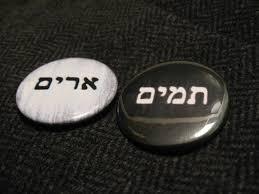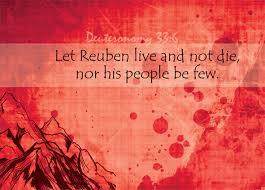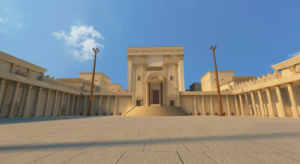Gf – Blessed Is the One Who Enlarges Gad 33: 20-21
Blessed Is the One Who Enlarges Gad
33: 20-21
Blessed is the one who enlarges Gad DIG: How does Jacob’s blessing of Gad fit his personality (as symbolized by Jacob)? Why did the tribe of Gad get their allocation of the land prior to the conquest of Canaan? Where will they be during the Millennial Kingdom?
REFLECT: In your life, what “lion’s share” has ADONAI given you? Have you, are you, fulfilling your responsibilities in the Kingdom of God? Are you cooperating fully with the rest of the Body of Messiah? Explain. If not, how can you use your spiritual gift and get involved?
On the day Moses died, he delivered his final blessing
and then ascended Mount Nebo to view the Land of Promise from afar.
As Moses blessed the tribes for success in their conquest of the Land, he came to Gad. The tribe of Gad had already been allocated its territory prior to the renewal of the covenant at Mo’av. When Isra’el defeated the pagan kings east of the Jordan River (to see link click At – Moshe Remembers Isra’el’s Conquest of the Transjordan), Gad took the “lion’s share” for themselves. For Gad he said: Blessed is the one who enlarges Gad (33:20a).

Although the tribe of Gad already had possessed its territory, it still had responsibilities in the coming military conquest of Canaan. Like a lion he crouches, and tears off an arm or even the crown of a head (33:20b). When Joshua led Isra’el into the Promised Land, Gad was living in a very hostile territory, next to the Ammonites. And because of that, we are told in Judges 10 that they grew to be a very warlike tribe (see the commentary on Genesis Lk – Raiders Shall Raid Gad, But He Shall Raid at Their Heels). Gad fulfilled its responsibilities, as is made clear by Joshua 22:1-6. The blessing indicates that Gad was to play an important part in the battle, and that as a result, the tribe would deserve a “lion’s share” of the fruit of victory.700
He chose the best for himself, being one of the first to choose their territory, but in the Messianic Kingdom, there will be a marked portion reserved for him, to the south of the Millennial Jerusalem (see the commentary on Isaiah Ge – Your Eyes Will See the King in His Beauty). He came with the heads of the people. He carried out ADONAI’s justice and His judgments for Isra’el (33:21). Although Gad already possessed its promised land, nevertheless, the tribe would cooperate faithfully along with the rest of Isra’el in the completion of the conquest of Canaan.
Dear Heavenly Father, Just as the tribe of Gad was living in a very hostile territory next to the Ammonites, and so in order to enlarge its boundaries it had to be a warlike tribe. We too live in lands hostile to You but we also are willing to fight to win souls for You and so enlarge the number of believers in Your family. The fruit of the righteous is a tree of life, and whoever wins souls is wise (Proverbs 11:30). Sometimes it is hard to share about You for we know that we will be laughed at, but how wonderful it is to pray and ask You to give us wisdom for what to say. But if any of you lacks wisdom, let him ask of God, who gives to all without hesitation and without reproach; and it will be given to him (James 1:5).
Praise You that we can also pray asking You to work on the heart of whoever we are talking to, guiding the circumstances to both soften his heart so he accepts You as Savior and also to help him grow strong in You. Now this is the confidence we have before Him – that if we ask anything according to His will, He hears us. And if we know that He hears us – whatever we ask – we know that we have the requests we have asked from Him (First John 5:14-15). What a comfort to have You as our wonderful Father! I love You! In Yeshua’s name and power of His resurrection. Amen




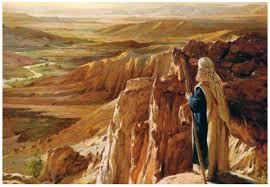
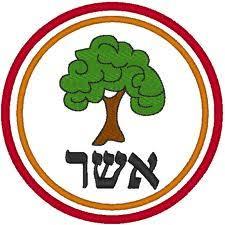
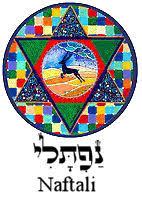

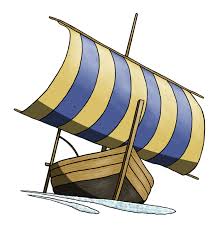 Zebulun and Issachar are described as two tribes who will receive rich
Zebulun and Issachar are described as two tribes who will receive rich 
